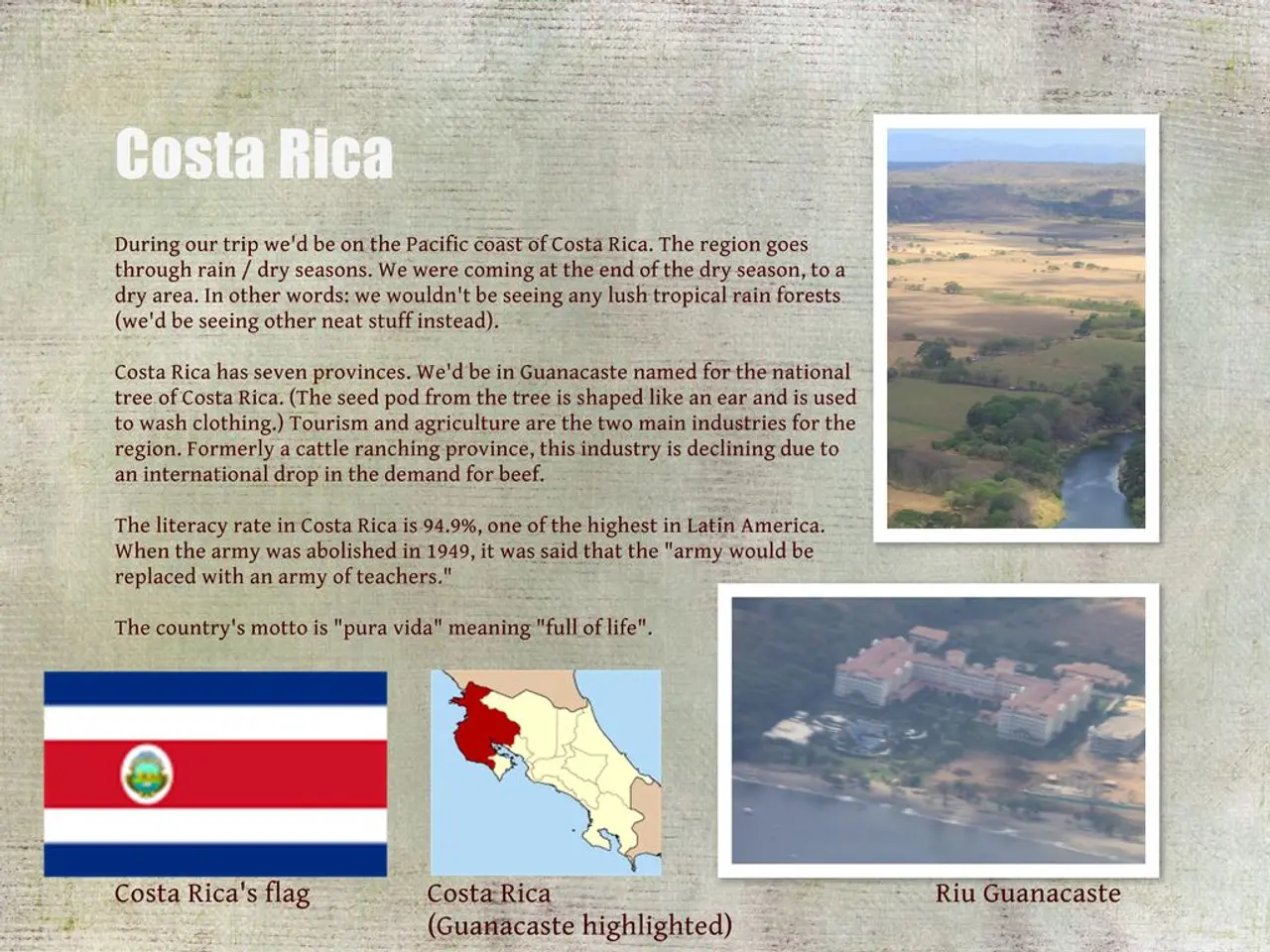Navigating the Heart of Contention: Gaza-Israel Conflict
Israel-Gaza Tensions: Tracing the Origin of the Protracted Disputes
Dive into the intricate web of history, identity, and politics that fuels the ongoing struggle between Gaza and Israel. This guide aims to provide a clear-eyed perspective, offering historical context and outlining the major events and player dynamics shaping this complex issue.
"Ancient Struggles: A Land of Many Faces"
The region that now encompasses Israel and Gaza abounds with a history stretching back millennia. Historically, the land was called Canaan, Judea, Palestine under Roman rule, and more. In ancient times, it hosted several civilizations, including the Canaanites, Israelites, and Philistines.
The name "Israel" itself dates back to biblical tales, referring to the ancient kingdom established by the Israelites. Centuries later, their descendants yearned for a homeland, a dream that would eventually contribute to the modern state's establishment. However, conflicts and conquests by empires like the Babylonians, Persians, Greeks, and Romans dimmed the use of "Israel" as a formal name, replaced by "Palestine" during the Roman Empire as a means of suppressing Jewish identity following a series of revolts.
"Empires Rise and Fall: A Tale of Power and Influence"
Fast-forward to the 16th century, and the region fell under Ottoman control, a time where Jews and Arabs coexisted under Ottoman rule. Yet the seeds of modern tensions were already being sown. The late 19th century witnessed the rise of two powerful ideologies: Zionism, advocating for a Jewish homeland in Palestine, and Arab nationalism, which aimed for independence from colonial powers.
Following World War I, the British took control of the region under the League of Nations Mandate. The 1917 Balfour Declaration supported the establishment of a "national home for the Jewish people" in Palestine, amidst promises to protect the rights of existing Arab communities. Tensions between Jewish immigrants and Arab residents escalated, foreshadowing decades of conflict.
"A World transformed: The Age of Change and Challenge"
The end of World War I wasn't just a turning point for the Middle East, but for the entire globe. The Ottoman Empire's collapse placed territories like Syria, Iraq, and Jordan under Western mandates. In Africa, former German colonies like Namibia and Tanzania were redistributed to European powers. Europe experienced new nations like Poland, Czechoslovakia, and the Baltic states emerging, while Germany and Austria faced territorial losses. Japan expanded its Pacific influence when it took former German-held islands, and Russia transitioned into the Soviet Union after the 1917 revolution, ceding territories such as Finland and the Baltic states.
These territorial shifts paved the way for future conflicts and independence movements, many of which still resonate today.
"Birth and Woes: The Establishment of Israel and the Displacement of Palestinians"
In 1947, the United Nations proposed a partition plan to create separate Jewish and Arab states, with Jerusalem serving as an international city. Jewish leaders accepted the plan, but Arab leaders rejected it, contending it unfairly favored the Jewish minority, who owned less than 10% of the land at the time.
On May 14, 1948, the State of Israel was declared, reigniting conflict. Neighboring Arab countries went to war, leading to the first Arab-Israeli war. By the war's end in 1949, Israel had expanded its territory beyond the UN partition plan's limits, and over 700,000 Palestinians had been displaced, an event Palestinians memorialize as the Nakba ("catastrophe").
"Gaza's Role in the Fray"
Gaza came under Egyptian control after the 1948 war, while the West Bank was annexed by Jordan. The Six-Day War of 1967 marked a tipping point, as Israel captured Gaza, the West Bank, East Jerusalem, and other territories. These areas continue to be at the heart of the dispute.
The Gaza Strip is a narrow coastal enclave that has endured decades of blockades, wars, and internal strife. Following Israel's withdrawal from Gaza in 2005, the militant group Hamas took control in 2007 following a brief but violent power struggle with the Palestinian Authority. Since then, Gaza has fought an Israeli blockade, periodic wars, and grappled with a severe humanitarian crisis.
"Present-Day Puzzle: A Cycle of Violence"
Today's conflict is marked by a recurring cycle of rocket attacks from Gaza and Israeli airstrikes. While Hamas claims its actions are justified in the name of resistance to occupation and blockades, Israel maintains that its measures are essential to guarantee security. Civilians on both sides bear the brunt of this violence.
Peace efforts-from the Oslo Accords in the 1990s to more recent proposals-have repeatedly failed, with stalemates surrounding settlements, borders, and the status of Jerusalem persisting.
"Human Stories: Beyond the Statistics"
Amid the political and military struggles, millions of ordinary people live day to day with the realities of the conflict. In Gaza, residents deal with poverty, unemployment, and limited access to basic services. Israelis confront the constant threat of rockets. Human stories often illuminate the deepest truths about the conflict's impact, emphasizing the shared humanity on both sides.
"The Significance of 'Israel': Symbol of Aspirations and Grievances"
The reemergence of the name "Israel" in 1948 held deep symbolic and historical meaning for Jewish people worldwide, representing the realization of a centuries-old dream for a homeland. But for Palestinians and Arabs, the name Israel often conjures images of loss and displacement, highlighting the vast differences in historical narratives.
"A Path Forward: The Quest for Solutions"
A lasting resolution to the Gaza-Israel conflict will require acknowledging historical grievances, ensuring security for all, and understanding the aspirations of both Israelis and Palestinians. While the road to peace remains unclear, comprehending the deep roots of the conflict is a vital step toward reconciliation.
The historical region encompassing Israel and Gaza, a land of multiple identities and conflicts, bore names such as Canaan, Judea, Palestine, and more, representing various civilizations that once thrived within its borders. Today, the name "Israel" symbolizes a successful realization of a centuries-old dream for a homeland, aroudn the same time it symbolizes grievances and losses for Palestinians and Arabs. Successfully navigating the complexities of the ongoing Gaza-Israel conflict requires acknowledging historical grievances, ensuring security for all, and understanding the aspirations of both Israelis and Palestinians to pursue a lasting resolution, which in turn requires understanding the deep-rooted politics, struggles, and history of war-and-conflicts that have shaped this land from ancient times to the present day.







